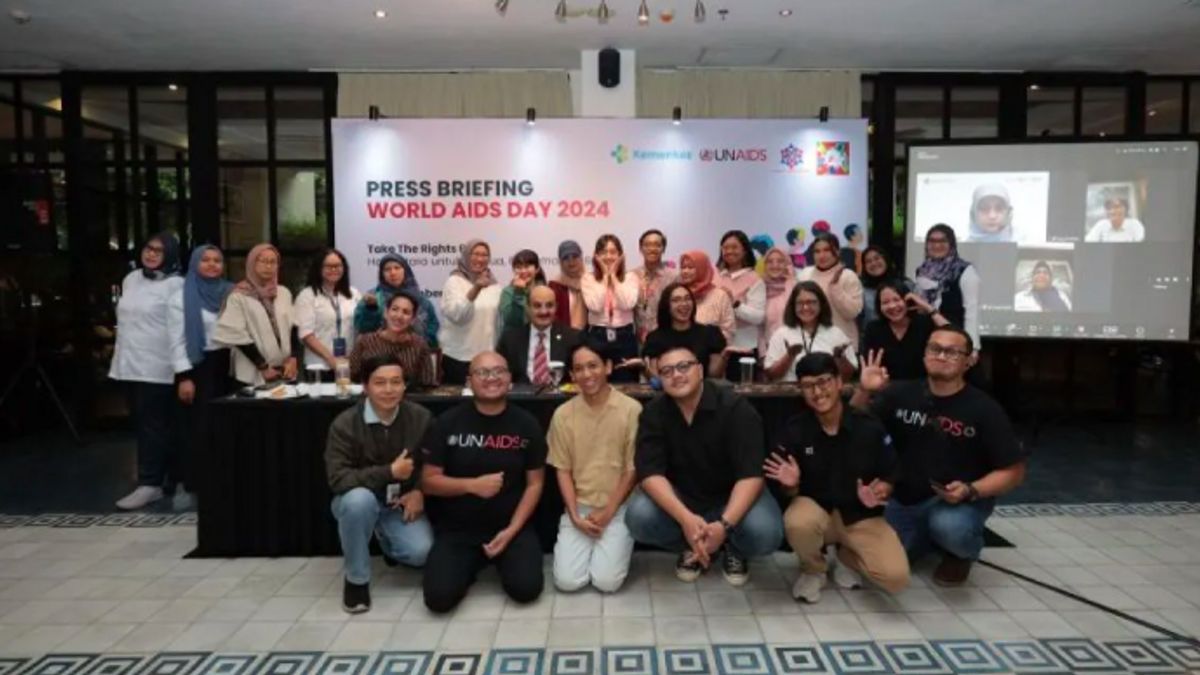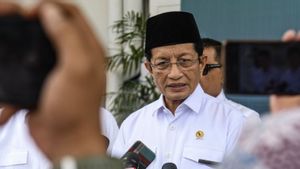JAKARTA - The United Nations Joint Program for HIV / AIDS (UNAIDS) highlighted various challenges faced by Indonesia in an effort to end the AIDS epidemic by 2030.
In a written statement in Jakarta, the Country Director of UNAIDS Indonesia, Dr. Muhammad Saleem, emphasized the importance of public education and increased awareness to overcome stigma and discrimination which is a significant obstacle in handling HIV.
Public education and inclusive policy advocacy are essential to achieve global targets. Without immediate steps, the number of new HIV infections can increase, and responses to HIV will be increasingly difficult to maintain, "explained Saleem.
According to epidemiological data from UNAIDS in 2024, globally there are 1.3 million new HIV infections and 630,000 AIDS deaths by 2023. Currently, out of a total of 39.9 million people living with HIV worldwide, 30.3 million have received antiretroviral therapy (ARV). However, only 48 percent of children with HIV have succeeded in achieving virus control (viral suppression).
In Indonesia, until September 2024, 71 percent of people with HIV (ODHIV) have known their status, 64 percent underwent ARV treatment, and 49 percent managed to reduce the number of viruses to a safe level. However, there are still major challenges in increasing the coverage of health services and ensuring accessibility for key populations susceptible to HIV.
One of the main obstacles is the increasing number of key populations at high risk, such as injecting drugs users and sex workers, as well as limited access to prevention services such as condoms and Pre-Exposure Prophylaxis (PreP).
To overcome this, community outreach efforts have been carried out in 178 districts/cities, with the distribution of prevention packages in 95 districts/cities. In addition, an independent HIV test using the Oral Fluid Test was introduced to improve early detection and accelerate handling.
Community-based approaches are key to reaching difficult-to-reach populations, ensuring they have access to the required services, Saleem said.
SEE ALSO:
UNAIDS emphasizes the importance of collaboration between governments, non-governmental organizations, and the public to achieve the 2030 target. World AIDS Day is seen as a momentum to strengthen shared commitment to ending this epidemic.
"Ending AIDS is not impossible, but we have to act now and stay on the right track," added Saleem.
With these integrated and sustainability steps, it is hoped that Indonesia can provide a better life for all people living with HIV and ending the stigma and discrimination that has been the main obstacle.
The English, Chinese, Japanese, Arabic, and French versions are automatically generated by the AI. So there may still be inaccuracies in translating, please always see Indonesian as our main language. (system supported by DigitalSiber.id)

















